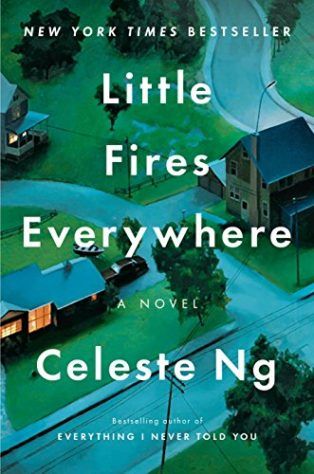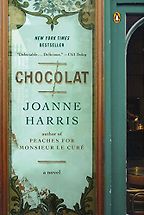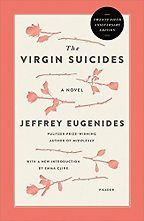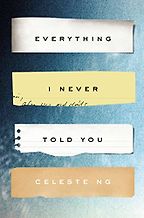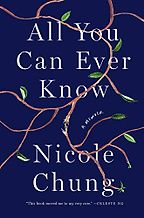Celeste Ng’s second novel is set in her real-life hometown of Shaker Heights – a carefully-tended Cleveland suburb – where the sense of order is upended after the arrival of the bohemian photographer Mia Warren and her daughter Pearl. As Pearl and Mia’s lives become ever more entangled in those of the well-to-do Richardson family, tensions mount. Conflicts over class, wealth and race all lead us towards literal conflagration. If you loved the book (and the television adaptation), you may now be searching for books of a similar style, or that deal with similar subject matter. Here are five books we feel to be like Little Fires Everywhere in some way.
Chocolat also opens with an itinerant mother and her daughter arriving in a straitlaced community and giving it a good shake – this time with a hint of magic and a feelgood slant. Vianne and Anouk Rocher pitch up in a pretty French mountain village and open a chocolaterie during Lent – luring in the villagers during their time of fasting and repentance, and attracting the ire of the puritanical local priest. Harris’s book was the basis of the hit 2001 Hollywood adaptation, which starred Juliet Binoche as the temptress Vianne.
Another book that, like Little Fires Everywhere, portrays a single mother’s relationship with her daughter, Fagan’s follow-up to her rapturously received The Panopticon – which earned her place as one of Granta’s best young British novelists in 2013 – is set in a Scottish caravan park at the end of the world. As a new Ice Age takes hold, self-sufficient Constance and her transgender daughter Stella find themselves transfixed by the beauty of the apocalypse as it approaches. This is a strange, unsettling and enchanting cli-fi story full of wisdom and meteorological wonder.
This intoxicating book – like Little Fires Everywhere – is set in an all-American suburb, and tells the story of the Lisbon sisters: four beautiful schoolgirls whose lives become increasingly controlled and confined by their parents after the suicide of their youngest sister. Suffused with sexual longing, the book is famously narrated by the unnamed boys of the local community in the first person plural. Eugenides’s text was sympathetically adapted by Sofia Coppola in 1999; both the book and the film are works of art in their own right.
Of course, no one’s work is more like Celeste Ng’s than Celeste Ng’s own. Her debut novel portrays a Chinese-American family in the aftermath of the tragic drowning of their daughter Lydia. Written in the format of a crime-thriller, but with the psychological depth of a literary novel, Everything I Never Told You is a brilliantly constructed page-turner that whips along, all the while carefully unpeeling layers of a complicated family struggling to succeed in a sometimes-hostile 1970s America.
Little Fires Everywhere features a subplot about the custody battle over an adopted child: the baby’s biological mother, a Chinese immigrant working in a takeaway restaurant, regrets surrendering her – while the adoptive parents, both white and wealthy, believe they offer a better future. Both love the child unconditionally; the judge must weigh the prosperity of the American couple against the child’s loss of her familial and cultural heritage. Nicole Chung’s adoption memoir, All You Can Ever Know, explores the issue of cross-cultural adoption in depth. She writes beautifully of growing up Korean in an all-white, American family, and her attempt to trace her birth family after falling pregnant herself.
Get the weekly Five Books newsletter
Five Books interviews are expensive to produce. If you've enjoyed this interview, please support us by donating a small amount.
